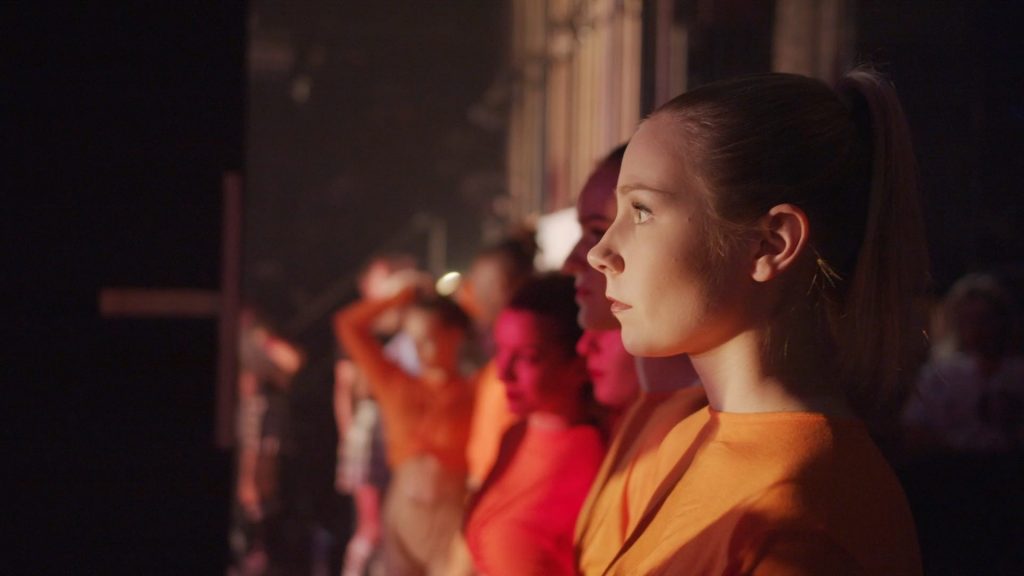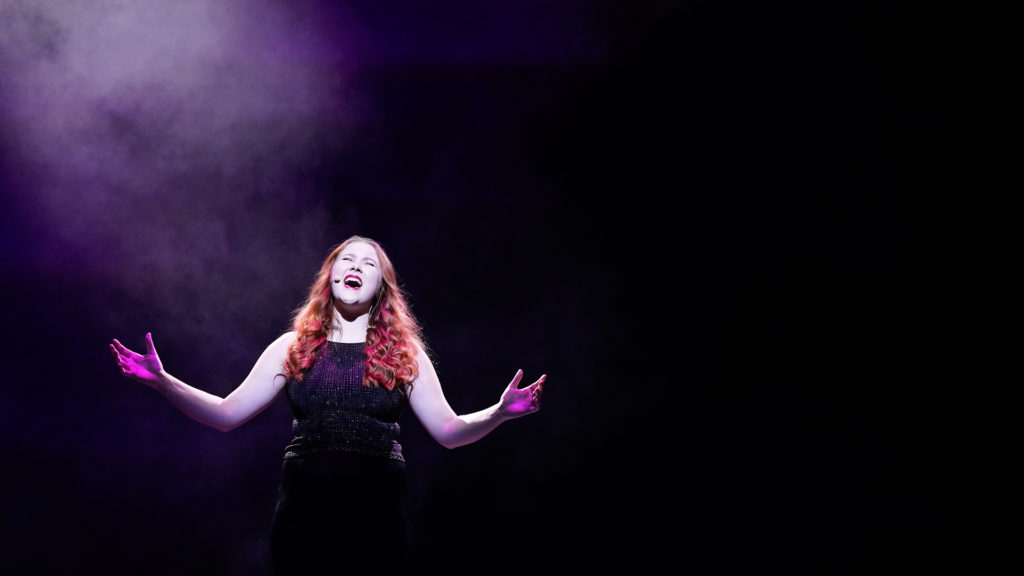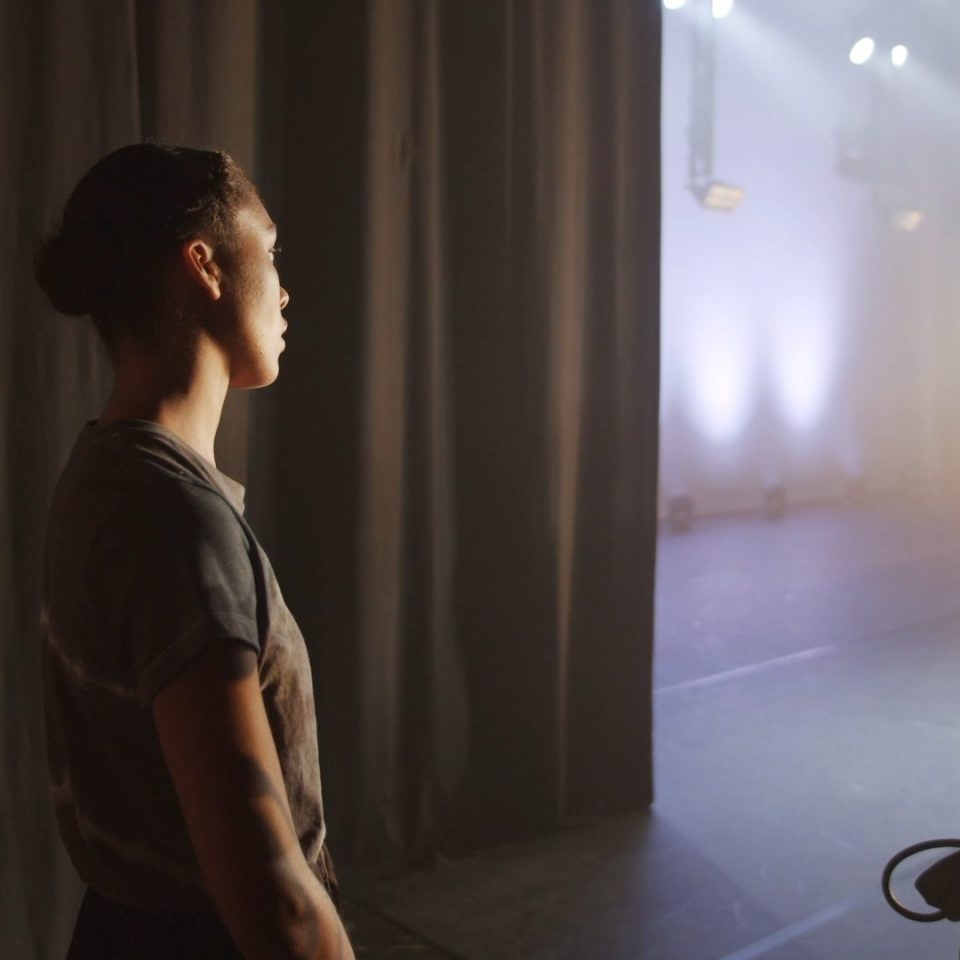You might be familiar with the term ‘stage fright’, usually used to describe the nerves one feels when performing on stage. A more useful term, however, might be ‘performance anxiety’, which is basically the nervous feeling we experience in all sorts of situations where the stakes are high – it might be auditions, assessments, competitions, tests, interviews, or even performing in front of your family at home or your friends in class.
If this sounds familiar to you, you are not alone. Most people experience some sort of nervous energy when it comes to performing in front of others where the outcome, or the audience’s judgment or evaluation, matters to us. If we’re lucky, these feelings more closely resemble excitement, where we’re looking forward to the experience and feel confident about what’s about to happen. But when those feelings feel more like fear and the body starts to respond to that perceived threat, our potential can be sabotaged, and we can fail to show what we’re capable of when it counts.
I can empathise with these feelings. I’ve been there. I walked away from my dream career as a performing artist due to crippling anxiety over auditions. I would feel so prepared, so confident, and yet walking into that room everything left me – my abilities, my skills, my confidence; all I was left with was chronic self-doubt, imposter syndrome, and an inability to access the technique I had so carefully honed through all my years of training. Everything became just a terrified blur and I felt totally out of control.

Nikki Laurence, Performance Anxiety Coach and Head of Musical Theatre at London Studio Centre
This, however, became the fuel behind what is now a decade of research into performance anxiety. I completed my MSc in Creative Arts and Mental Health at Queen Mary University of London in 2020, my research foci being performance anxiety, resilience and the ideal level of mental health provision for performing arts students in vocational training in London. From there I launched my performance anxiety coaching practice and enhanced my coaching toolkit with a Certificate in Cognitive Behavioural Therapy and a triple-accredited (ICF, AC and EMCC) coaching qualification with Optimus Coach Academy. I am also mid-way through my doctorate; the Professional Doctorate in Elite Performance through the University of Lancashire, where I am continuing my research into performance anxiety and resilience in elite performers. This research also informs much of my work as Head of the Musical Theatre Pathway and Programme Leader for BA (Hons) Professional Performance (Top Up) here at London Studio Centre.
What is performance anxiety?
Performance anxiety, in a nutshell, is an overestimation of the threat posed by the experience you are about to face, and an underestimation of your capacity to handle it. Your brain is responding to the performance situation as though you are facing some immediate life-threatening danger. Our brain doesn’t know the difference between real and perceived threat; it will just kick off our ancient fight or flight mechanism as though we have a wild animal chasing us rather than simply having to sing a song.
Whether you’re preparing for drama school auditions, struggling with performances or assessments during your training, or auditioning out in the professional world, having some handy tools in your back pocket can really help you out when you are struggling with fear in those moments that really count. Here are some quick-fire tips for overcoming stage fright, and helping you reach your full performance potential.

1. Control your breathing
Controlled breathing is one of the most powerful tools we can use to bring our nerves under control. Taking slow, steady breaths slows down our heart rate and helps shift our nervous system out of panic mode and back to a state of calm. Once we have our breathing and heart rate under control, the fight or flight response to danger stands down and we regain control of our minds and bodies.
Take ten slow, deep breaths in through the nose and out through the mouth (inhale for 4, hold for 7, exhale for 8), and whilst doing so, focus entirely on the sensation of those breaths coming in and out of the body to not only calm your nervous system, but steady your racing thoughts by bringing the mind firmly back into the present moment.
2. Reframe the fear
Excitement and fear can feel very similar. They have lots of the same features: butterflies in the stomach, a racing heart, quickened breathing, maybe a bit of trembling somewhere in the body. However, the impact of fear is probably going to be very different to that of excitement. When we’re looking forward to something, and are excited for the opportunity, we’re likely to have just the right amount of adrenaline in the body to work at our optimum level of performance; our brains will be focused, our bodies energised, our skills will be right there at our fingertips, ready to go. But when we feel fear, the heightened level of adrenaline in the body has a very different effect: we’ll forget our words, our bodies will shake uncontrollably and impact our technique, we won’t be able to control our breathing and our racing hearts and minds make us feel panicked and out of control.
If you can reframe the feelings of adrenaline in the body to excitement for the experience, rather than fear of what could go wrong, you may be able to use it to your advantage.
3. Prepare, don’t perfect
Perfectionism fuels anxiety. It’s natural to want to aim for the best performance possible, but striving for perfection leaves very little room for being human and is far more likely to see you make mistakes as your expectations of yourself are just impossibly high.
Aiming for excellence is far more achievable, or even just the best you can do under the circumstances; after all, you can’t do better than your best, and your best changes moment by moment depending on your circumstances. Ensure you prepare thoroughly so you feel as confident as possible but forgive yourself if things go wrong and most importantly, move on immediately! You can’t change what’s gone before if you do make a mistake, but how you recover will make a big difference to the outcome. If you crumble under self-criticism, it’s unlikely you’ll get back to your best, but if you let the moment go and focus forward on to the rest of your performance, the audience will most likely forget instantly (if they even noticed in the first place!). As my lovely colleague Tony in the Acting department teaches: Cancel, continue!
4. Visualise Success
When it comes to fear, your brain can’t tell the difference between what’s really going on in front of you and what you imagine. If you spend your time imagining all the things that could go wrong in your performance, your brain will respond with fear when you reach that performance moment, because you’ve trained it to respond to that perceived threat.
Use your imagination to your advantage. Spend your preparation time imagining your performance going as well as it can possibly go. Imagine it in full 3D – how does it look, smell, sound, how do you feel when it all goes swimmingly and you succeed? Imagine the outcome – be it that offer letter to drama school, performing on the West End stage after winning that role, starting the new job you successfully interviewed for – go all out in visualising how it feels. When you reach that moment that counts, you’ll have trained your brain to be excited for success rather than afraid of failure.

5. Ground yourself physically
Simple techniques like pressing your feet firmly into the floor or gently touching something in the room such as the wall, the barre, anything really, can anchor you in the present moment. When you feel your thoughts spiralling into a negative cycle, it’s important to bring yourself back into the moment, as those thoughts are guaranteed to be about the past (remembering a bad experience and fearing it happening again) or the future (all the ‘what ifs’ we create around what could go wrong and the impact of that). In the present moment, all we need to do is focus on the task at hand and stop those negative thoughts spiralling.
You can also bring yourself into the room by taking a moment to observe something in the room in detail; it will only take a few seconds of examining something you can see to bring your brain into the present and remind yourself that you’re ok.
6. Shift your focus away from yourself
Focus on the story you are telling, and the experience of your character, rather than on yourself. This takes attention away from “How am I doing?” to “What am I giving?” or “Who am I being?”. Hosting a dialogue on your performance is certainly going to distract you from the task at hand, and as your own worst critic, it will keep you firmly rooted in self-criticism and worry about what others are thinking. Your character isn’t worried about whether that note will come out, or how well you’re doing against that other person you’re comparing yourself to. Step fully into your character’s world, feel their feelings and travel their journey, and take yourself out of the picture. Your job is to take your audience on a journey through your performance, and your self-criticism is never going to provide them with that fully immersed experience.
7. Challenge negative thoughts
Catch yourself thinking phrases like “I can’t do this” or “I’m not good enough” and replace them with balanced affirmations such as “I’m prepared, and I can handle this.” Our thoughts will always travel down the most-trodden path, but with consistent redirection of negative thoughts down a more positive route, we can retrain our brains to feed us positive thoughts instead. It takes about 60 days of consistent redirection of negative thoughts down a positive path to retrain that neural pathway, so get practising! Catch that negative thought and choose not to believe it or be influenced by it. Choose a positive affirmation that you actually believe (there’s no point in trying to convince yourself of something you don’t feel) and focus on that thought. “I can do this” or “I am well prepared” will serve you far better than those self-sabotaging doubts our brains love to feed us.
8. Practise performing under pressure
Simulate performance conditions in rehearsal — run-throughs in front of friends or teachers, recording yourself, or mock auditions — so the real thing feels familiar. A helpful part of your performance preparation will be to give yourself the experience of performing under pressure, so it feels more familiar when it really counts.
Notice what happens to your brain and body when you’re nervous so you can recognise those feelings and bring them under control. You may not be able to simulate the exact same level of pressure as that performance that really matters to you, but you can be sure that the more experience you can get of exposing yourself to performance pressure, the more you’ll feel you can handle it when it counts.
9. Create your pre-performance routine
Discovering your ideal pre-performance routine will help you focus and calm your nerves when it comes to the time to perform. Everyone has different needs ahead of a performance – some people need quiet time to focus and get into the performance mindset; others prefer to elevate their energy through physical activity or excited conversation. You might like to warm up or rehearse your lines, or it might work best for you to stop thinking about the performance and just ready yourself in peace.
Whether you choose to stretch, jump, siren or be still, your rituals should tell your body: I’m safe, I’m ready. Importantly, respect others’ need to conduct their own pre-performance routine the way they need to. If someone is choosing to be quiet in a corner, leave them to it and don’t distract them with your own excitement or nerves. Equally, if you need to be quiet and others are disturbing your focus, feel free to take yourself away or ask others for what you need; you deserve the space to prepare the way you need to.

10. Acceptance is key!
We spend an awful lot of time worrying about things we can’t control. Many of these are either in the past (“I wish I hadn’t done that” or “Why did I forget those words last time?!”) or in the future (“What if they think I’m not good enough?” or “What if I don’t succeed?”). You get the idea. What I can assure you of is, whatever concerns you have over the past, you have no control over them; they are done, and no amount of worrying about them can change what has already happened. Turn your attentions to what you can control. You can’t control what people will think of you, the outcome of the audition, or the reviews you’ll get on your press night. What you can control includes how much you prepare, your mindset around the experience, and your ability to bounce back from disappointments, among many other things. Work out what you can control and let go of the rest. And while you’re at it, make sure your self-talk is filled with ‘do’ statements rather than ‘don’t’s. It won’t help you to think “Don’t forget the words” or “Don’t fall over”; all you will do is put those thoughts in your mind to worry about. ‘Do’ statements are far more helpful so instead try something like “Do think about the character’s journey” or “Do engage your core when holding that relevé”. That will give your mind something to focus on that is specific, measurable and controllable.
The importance of being nervous
I hope this article has given you some understanding of what performance anxiety is and some strategies to overcome it. It is important to mention, however, that accepting your nerves is a very helpful part of the process of overcoming them. Seeing them as a welcome friend who is reminding you that you care about what you’re about to do, and encouraging you to do your best, is a good way of trying not to fight with the nerves. Accepting some degree of nervousness, along with the strategies here to help you deal with the overload of too much fear and stress, might just be the recipe it takes to perform at your best.
If you find this isn’t enough, there are many places you can turn to for help. You can check out my coaching practice at www.nikkilaurencecoaching.com; I’ll be very happy to help you. Companies like Applause for Thought offer lots of support services at low rates, and you can find resources on sites such as Industry Minds and BAPAM.
If you are a current student at London Studio Centre, or hope to become one, we have lots of resources to help you. I provide psychological skills coaching as part of my role as a Head of Department and Programme Leader. Additionally, our in-house counsellors see students free of charge to discuss any aspect of mental health care you might need. We have a strong Student Welfare department who provide wraparound care for our students’ minds as well as bodies, and our services are confidential.
We look forward to supporting you on your performance journey!


